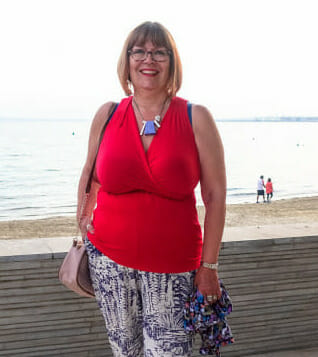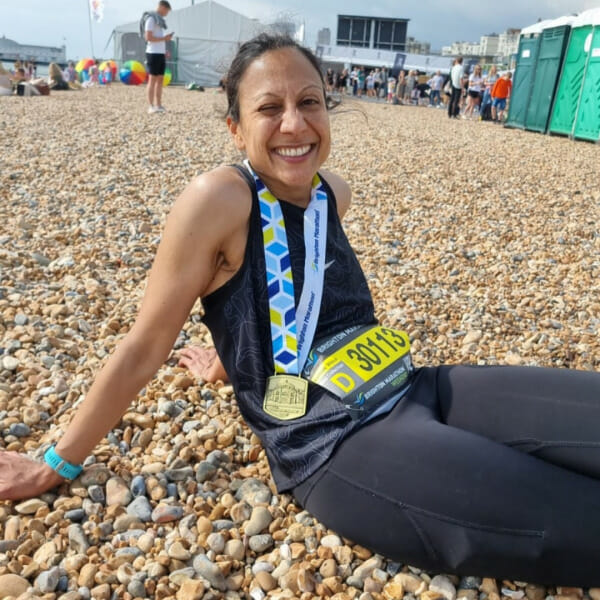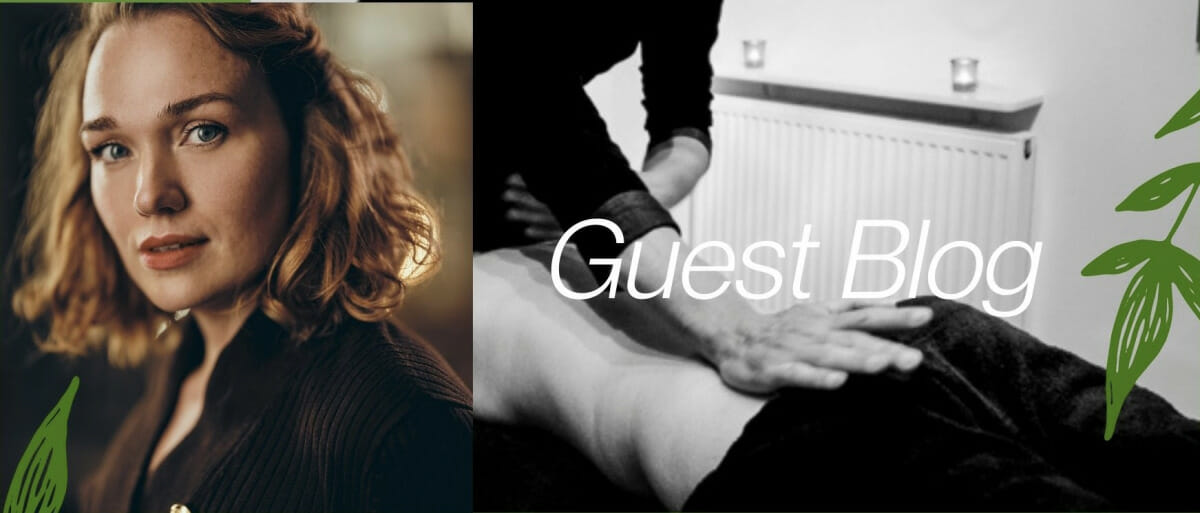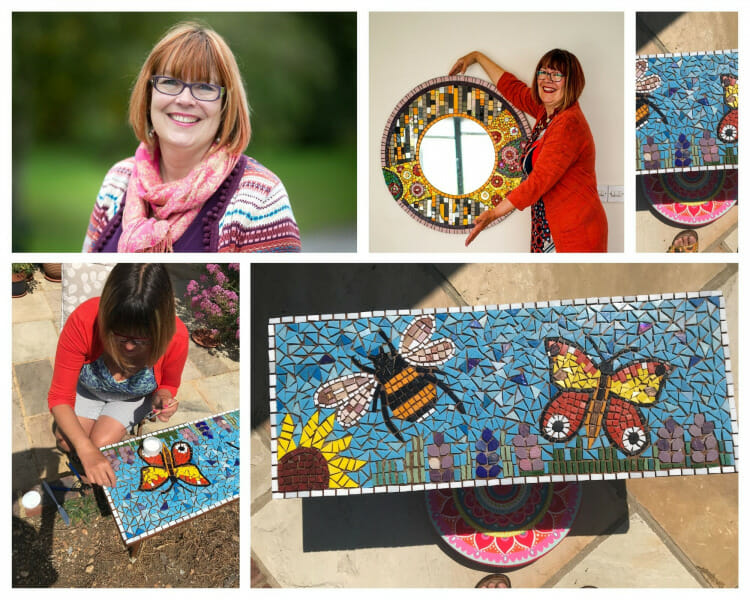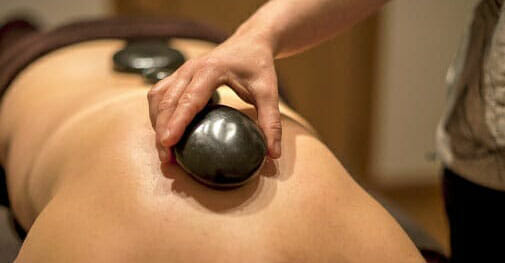Massage in Brighton
Brighton, a relatively small city on the south coast, is fast becoming the UK’s number one centre for therapeutic massage. Well known for its progressive open-minded population, the city now has a high density of massage centres and massage schools offering a wide range of services from clinical massage to pampering spas.
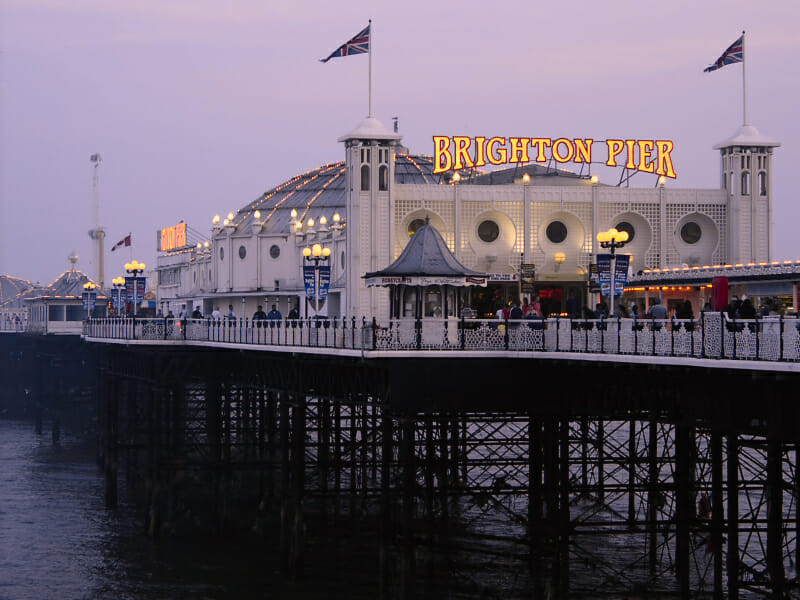
Whilst not completely scientific if you compare the number of listings on Yelp for say Manchester vs Brighton, Manchester lists 1 massage business per 5000 population compared to Brighton’s 1 per 2000 population – a significant difference. Several of the UK’s top massage schools are based here including the Jing Institute and The College of Classical Massage.
The University of Brighton also runs a Foundation Degree in Complementary Healthcare, a 2-year full time course which includes advanced clinical massage in its syllabus. So, what makes massage so popular in Brighton? Well in part it is the open-minded population (remember this was the first city to elect a Green MP to Westminster) who are pro ‘natural’ solutions that focus on preventative wellbeing rather than reactive ‘traditional’ medicine.
What is Massage Therapy?
Massage Therapy focuses on healing the mind and body through the power of touch, manipulation, and relaxation. Up until recently, it was believed that this was achieved by directly forcing physical changes in the muscles and other soft tissues of the body. Modern research, however, supports the view that we interact with the nervous system of the clients, and that’s where any physical changes, such as muscle relaxation, come from.
There is also a chemical response to massage with the release of ‘feel-good’ hormones, endorphins, that can improve health and well-being further.
There are many different types of Massage Therapy, such as Deep Tissue, Swedish, and Shiatsu, each with a slightly different approach and benefits.
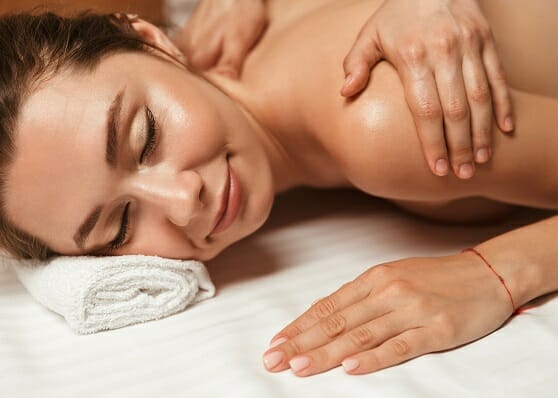
What should I expect during my first massage therapy visit?
We recommend you arrive 10 minutes before your appointment. On arrival press, the intercom for Natural Balance and you will be either directed to take a seat on the ground floor waiting area or to come straight down the stairs if your therapist is ready for you.
All clients will need to complete a consultation form that outlines any medical issues and also is your opportunity to explain what you would like to get from your treatment. Communication is key to getting the most from your treatment, so take this opportunity to ask any questions and let your therapist know anything that will help you to relax and get the maximum benefit.
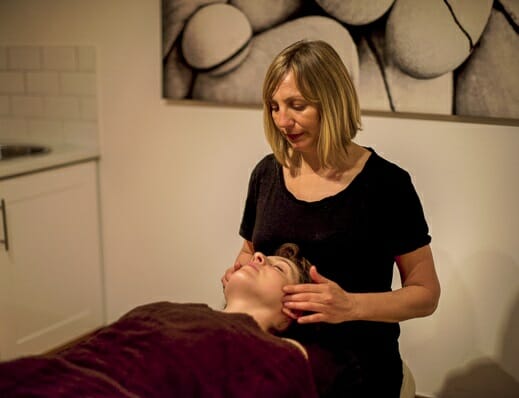
After the consultation is complete, your therapist will leave the room so you can undress and make yourself comfortable on the couch. Your therapist may direct you as to what level of undress is required, but ultimately it is up to you to feel comfortable. You will be draped by towels during the treatment so that only the part of your body being worked on will be exposed. This ensures your modesty and comfort throughout the treatment.
Always let your therapist know, during the treatment, if you start to feel too cold or hot, don’t like the music, or would like more or less pressure. Don’t wait until the end.
At the end of the treatment, your therapist will provide you with aftercare advice to help you deal with any soreness and maximise the benefits before your next treatment, provide you with water to rehydrate, and leave the room so you can get changed. They will also offer some guidance on when it would be beneficial to schedule another treatment, and take you through some options for rebooking.
Why is Massage Therapy important for your wellbeing?
Massage Therapy can help the whole body by reducing stress and anxiety. This, in turn, can improve sleep and bolster the immune system, the body’s natural defence, against disease. It can also work more precisely in improving mobility, posture, and muscle-related aches and pains, making movement easier and reducing the risk of injury.
What are the benefits of Massage Therapy?
Massage therapy can have a positive effect on a person’s physical state, emotional welfare and psychological wellbeing. On a physical level, it can cause changes to our bodies systems including the muscular, fascial, cardiovascular, lymphatic, nervous, endocrine and digestive systems.
As such, the benefits are broad from reducing pain or anxiety to making us more flexible and less prone to injury. These, in turn, can yield benefits such as improved sleep, reduced levels of sickness, feeling ‘in control’ and general happiness.
While massage may help with a range of issues, the most benefit comes from having regular monthly preventative treatments as maintenance.
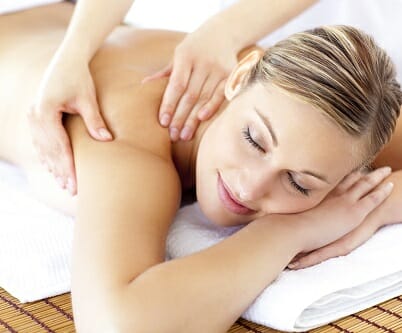
Our Professional, Experienced and Caring Therapists offer Massage Therapy, Osteopathy, Acupuncture, and Beauty Treatments. Book your appointment in Brighton & Hove Today!
Stress Relief and Associated Conditions
Stress can harm our bodies, causing muscles to contract and stress hormones such as adrenaline and cortisol to be released. In the short term, these responses can be beneficial, but over time, they can cause poor health. Massage has been proven to counter some of these effects.
Inflammatory Conditions such as Arthritis and Tendinitis
Direct message isn’t used for inflammatory conditions when acute, but gentle stokes such as those used in lymphatic drainage may help reduce swelling and associated pain.
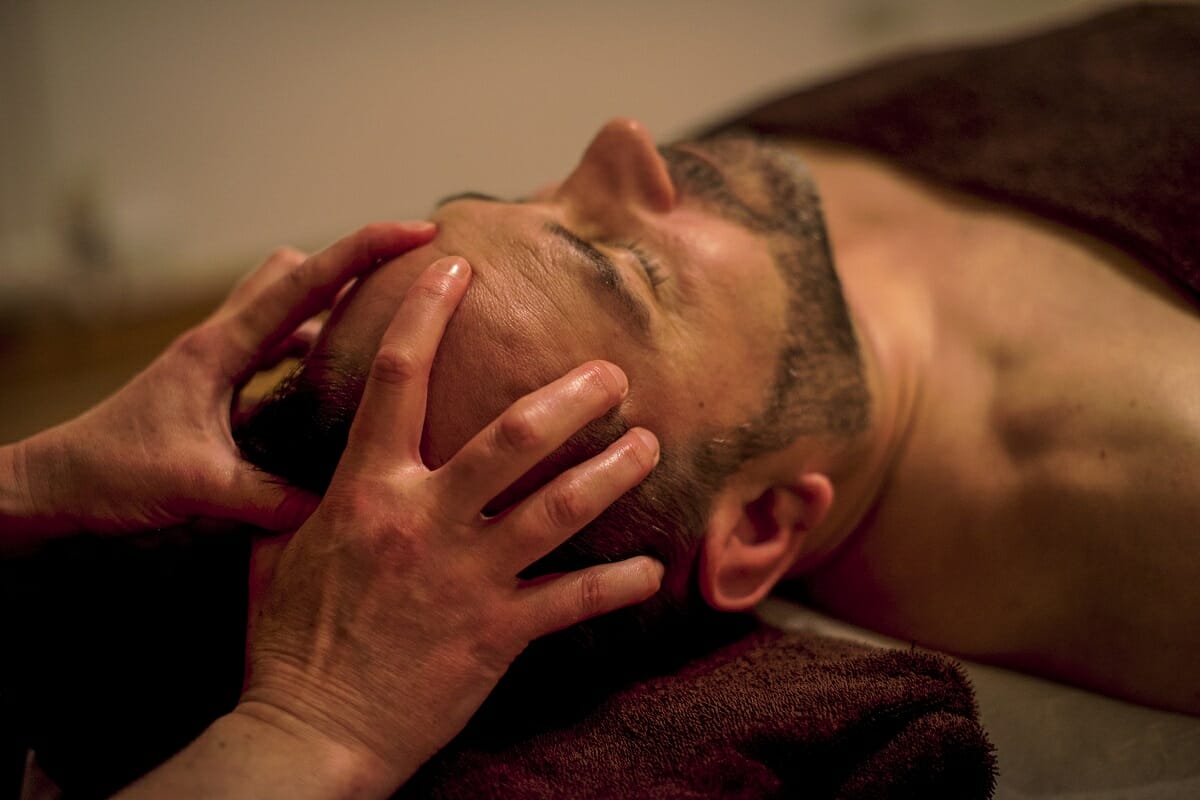
Headaches and migraines
Massage therapy has effectively treated both tension headaches and migraines as these are often caused by referred pain from the muscles of the neck and shoulders.
Muscle and related conditions such as spasms, strains and sprains
A muscle can contract and go into spasm for many reasons, including dehydration, mineral deficiency, fatigue, and injury. Gentle massage to encourage blood flow and lengthening may help reverse this. A muscle strain or ligament sprain occurs where is a tear to the fibres caused by overloading or repetitive overuse. While the injury is acute, there is often swelling, and direct massage is not appropriate. Once it is no longer painful to touch, massage can be beneficial in decreasing sensitivity and encouraging normal movement.
Post-injury and Post-surgical Rehabilitation
When the body is traumatised, it goes into a protective state. This typically means muscles shorten to restrict movement and close to the injury becomes hypersensitive to touch. Massage therapy aims to reverse these two states and help the body return to normal. If still under medical supervision, check with your doctor before having any complementary therapies.
Circulatory and Respiratory problems
Massage increases circulation in the body and can be helpful with symptoms such as cold hands or feet and swelling at the extremities. If under medical supervision for a Circulatory or Respiratory condition, it is essential to get approval from a doctor before having a massage as there are scenarios where massage is not appropriate.
Repetitive Strain Injury
Repetitive strain injury (RSI) is a term used to describe pain caused by repeated movement and overuse of muscles, nerves and tendons. It is prevalent in work, sports or activities that involve a repetitive action.
The condition may affect many areas of the upper body, such as forearms, elbows or wrists. As with any overuse injury, massage can help manage the pain though without removing the cause, any relief may be temporary.
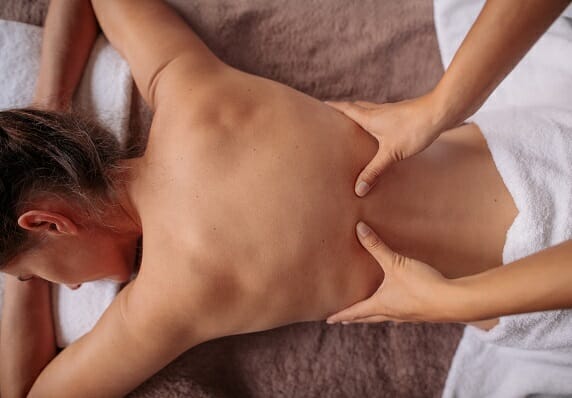
Back Pain
Back pain is one of the most common reasons for people to see their G.P’s. While there can be numerous causes for back pain in a majority of cases, it is not serious and is caused by overworking the muscles. Massage can be extremely beneficial in helping the muscle to relax and desensitised.
Pregnancy and Labour Discomfort
Pregnancy Massage is available from 16 weeks to full term and can really help with a range of issues including lower back pain, headaches, swelling and stress.
How Can Massage Therapy help You With Your Back Pain?
Massage Therapy can be used to both prevent and treat back pain. A range of techniques, including Deep Tissue Massage and Stretching, may help to reduce hypersensitivity and increase range of motion.
Increased movement and blood flow can both help reduce post-injury recovery time and promote healing by bringing the muscles and connective tissue, nutrients. Relaxing the muscle will increase strength, reduce pain associated with muscle spasm, and even improve sleep.
In a 2016 review of nondrug treatments for low back pain, the Agency for Healthcare Research and Quality reviewed 20 studies comparing massage with regular care or other interventions and found evidence that massage was effective for chronic low back pain. Still, the strength of the data was insufficient, highlighting the need for more research. That said, there is lots of anecdotal evidence to support the use of Massage Therapy for back pain.
Massage Therapies We Offer
We offer over twenty different types of massage therapy. With such a wide range, it can be difficult knowing which would benefit you most. A lot will depend on what you want to get from your treatment and personal preference, but if you need help choosing don’t hesitate to get in touch.
Full Body Massage
After the Back, Neck and Shoulders Massage, Full Body is our second most popular choice. A full body massage may include the back, neck, shoulders, face, head, glutes, arms, hands, legs, feet, stomach and chest (for men). While it does not include the breasts on women, it may incorporate the Décolletage, the area from the collar bone down to where the breasts start.
That said, not all of these areas have to be included, and some clients may have areas, such as their feet or stomach, that are too sensitive to be massaged. It is very much up to the individual and feeling totally relaxed is of paramount importance, so treatments are always adapted accordingly. With a few exceptions, any of our massages can be given as a full body.
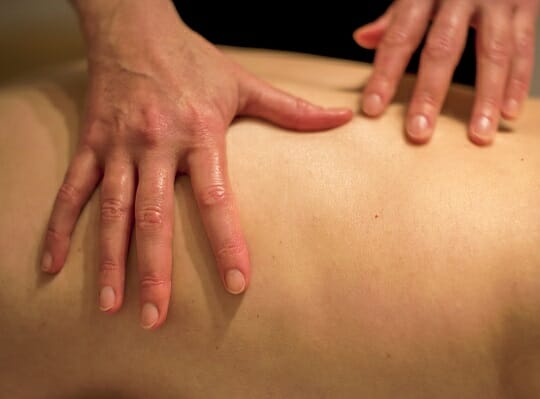
Back, Neck & Shoulders Massage
The back, neck and shoulders are, without a doubt, the most popular areas to be chosen for massage as we all hold physical and emotional tension here.
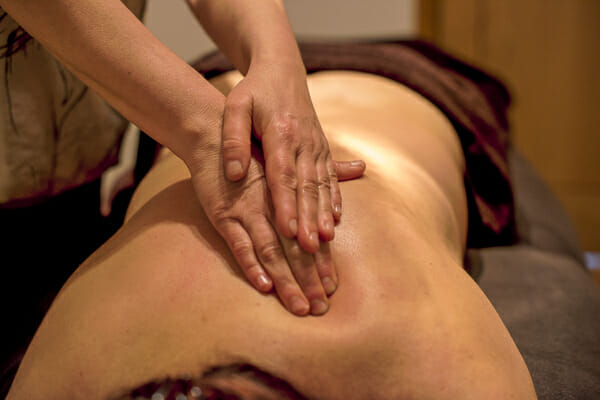
These muscles have a tendency to shorten from hours on the computer or phone, feeling tired or stressed, or physical activities, such as tennis or swimming. This shortening can result in a stiff neck or tension headaches if left untreated. Back, Neck and Shoulder Massage is an integral part of most of the different massage types we offer.
Sports Massage
It’s a common misconception that Sports Massage is for Sportspeople only. In fact, it is suitable for all ages and levels of activity. A significant component of Sports Massage is Deep Tissue Massage. The main difference is the more clinical approach with Sports Massage.
Where the therapist uses a range of techniques to achieve the desired outcome, with less focus on relaxation.
That desired outcome is often reducing aches and pains. Still, it could also be getting a client ready for a sporting event, speeding up recovery after an endurance event or helping reduce muscular tension from long hours at work.
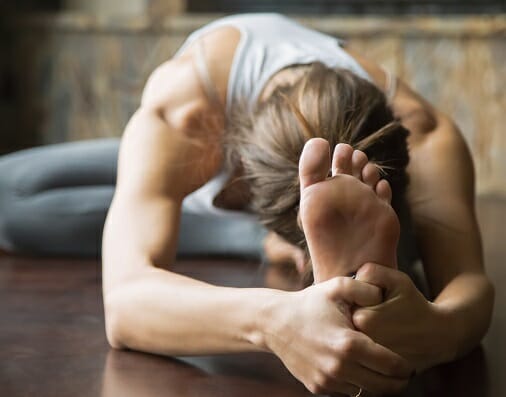
Deep Tissue Massage
Deep pressure is applied using the therapist’s thumbs, forearms and elbows helping to stretch out muscles that are shortened and tense.
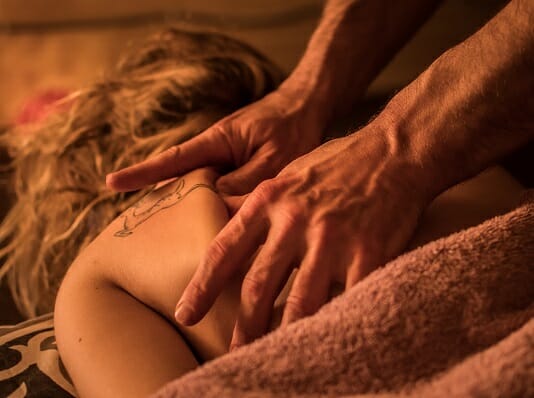
It can feel uncomfortable, but deeper isn’t always better, and a skilled therapist will work with a pressure that is therapeutic but still relaxing. Whether you’ve overdone it at the gym or work long hours at a computer, this treatment will help free up your body and improve flexibility. If you suffer from knotted shoulders, tight hamstrings or lower back pain, Deep Tissue Massage can help free you up.
Remedial Massage
Remedial Massage is a Therapeutic or Clinical massage that aims to resolve a particular issue, usually muscular pain. However, the outcome could relate to poor posture, reduced mobility or sports performance.
It is sometimes called Medical Massage though this term implies the therapist has a medical qualification so is NOT generally used in the UK.
More commonly, in the UK, it is called a Sports Massage. However, this term is also unhelpful as it suggests the treatment is only for sports injuries or sportspeople… which it isn’t.
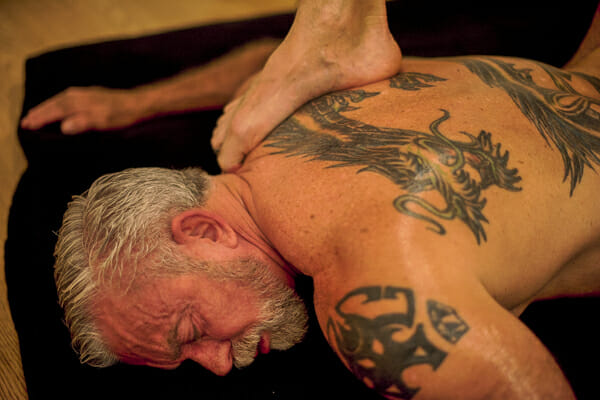
Acupressure Chair Massage
Acupressure Seated Massage, also known as On-Site-Massage (OSM) originated in California in the early 1980s by David Palmer, a Traditional Chinese Masseur. Inspired by the Traditional Chinese art of healing called Amma, this ancient technique was adapted to a specially designed, ergonomic chair. It was developed to counterbalance the rise in use of computers and sedentary type work.
Myofascial Release
Myofascial release refers to a series of techniques designed to release areas of facial restriction. Fascia is the connective tissue that surrounds and permeates every part of our bodies. It works by releasing restrictions throughout the whole body, giving relief to many aches and pains in one treatment.
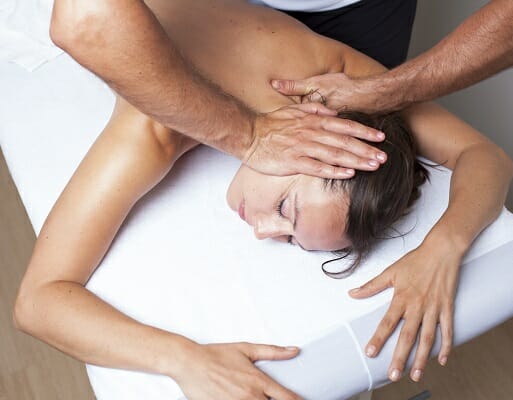
Myofascial Release brings about permanent change in the tissues so that the results will last longer than conventional massage treatments. Postural changes may also occur so that symptoms do not keep re-occurring. One main difference between this treatment and other forms of massage is that it is done on dry skin, with no oils or lotions.
Aromatherapy Massage
An aromatherapy massage uses a mix of essential oils in a carrier oil that is blended, especially for your desired outcome. The chemical make up of an essential oil may be complex, and this is why a single oil may have a range of different effects when absorbed or inhaled by the body. Some essential oils are relaxing, while others are stimulating.
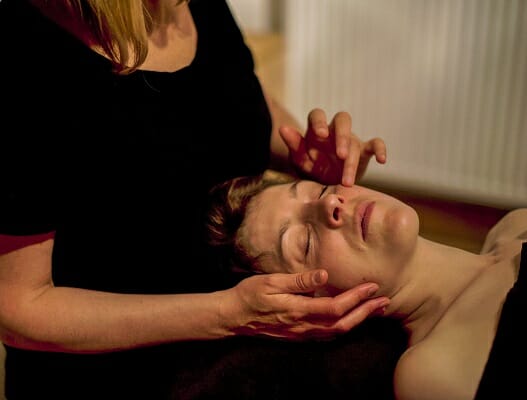
Grapefruit will lift your spirits; Eucalyptus may clear a fuzzy head and Sandalwood is very calming. Aromatherapy Massage may help a range of conditions including insomnia, nausea, muscular pain, aching joints, stress and anxiety, skin disorders, lymphatic drainage and hormone imbalances.
Californian Massage
Californian massage incorporates many of the recipient’s senses. The massage motions are gradual and systematic, with gentle touches, kneading, and stretching. It was developed in the 1970s during a personal growth workshop at the Esalen Institute® in Big Sur California. More than just a means of relaxation; this massage technique was intended to give the recipient a chance to reconnect with their body.
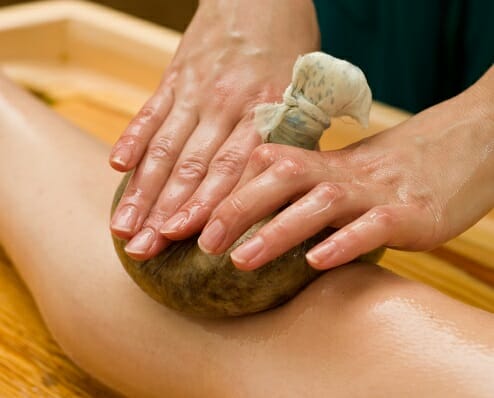
Ayurvedic Abhyanga Massage
Abhyanga, meaning ‘oil massage’, is a type of ayurvedic medicine involving body massage with Dosha-specific, warm herbal oil. The base oil, sesame, is usually pre-mixed with herbs.
During this full-body massage, the body is anointed with the oil and long flowing strokes used from head to toe.
Our Professional, Experienced and Caring Therapists offer Massage Therapy, Osteopathy, Acupuncture, and Beauty Treatments. Book your appointment in Brighton & Hove Today!
Couples / Duo Massage
In this massage, two people are massaged in the same room, at the same time, by two different therapists. It can be a husband and wife, same-sex partners, girlfriend and boyfriend, or just good friends.
You may choose this option to celebrate a special day or just because you want to maximise your time spent together. Couples/Duo massage is also a great way to introduce a partner or friend who has never experienced massage and is apprehensive about it to this beneficial treatment. As for couples massage etiquette, it’s fine to talk to each other through the massage if you want or be quiet the whole time. It’s really up to you.
Hawaiian Lomi Lomi Masssage
Hawaiian Massage, also known as Lomi Lomi, is one of the most profound forms of healing massage and can induce states of meditation and blissful feelings of floating. It is based upon an ancient type of healing and bodywork which aims to treat the person as a whole.
In this unique flowing oil-based massage, long and fluid rhythmic strokes are used over the whole body. The therapist uses their hands, fingers, forearms and elbows, applying soft and deeper pressure to lengthen and gently stretch muscles. The rhythm is very relaxing and blissful.
Hot Stone Massage
Hot stone massage is a therapy used to help relax and ease tense muscles and damaged soft tissues. The volcanic basalt stones are heated to around 60 degrees Celcius. As soon as the smooth flat stones are placed on your body, you understand why a heated massage is so sublime. As the stones glide around your body, easing away the stress and pain, a level of relaxation is achieved that becomes highly addictive!
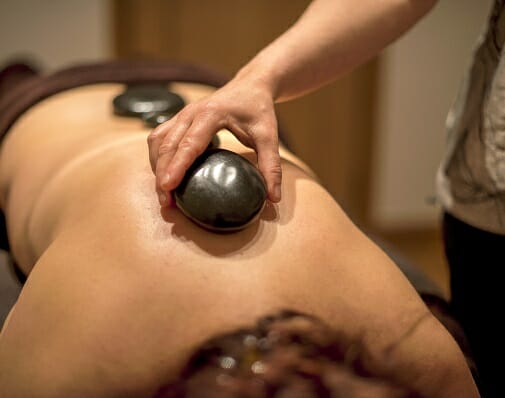
Indian Head Massage
Indian head massage is a calming holistic therapy that includes head, ears, neck and shoulders. Massage and acupressure are used to help rebalance the energies of your body. This vigorous but relaxing massage gives relief for tension in the neck and scalp. The massage takes place with you sat in a chair and wrapped in a towel. Following the Indian tradition, coconut oil is applied liberally during this massage, nourishing the skin and hair.
Manual Lymphatic Drainage
Manual Lymphatic Drainage (MLD) is an essential part of treating lymphoedema, a chronic condition that causes swelling in the body’s tissues. It’s a form of gentle massage that stimulates the lymphatic system to reduce swelling. It is beneficial used pre and post-operative for both cosmetic and orthopaedic surgery. It can promote the healing of fractures, torn ligaments, sprains and lessens pain. It relieves fluid congestion and can help heal wounds and burns as it improves the immune system and encourages the removal of waste products.
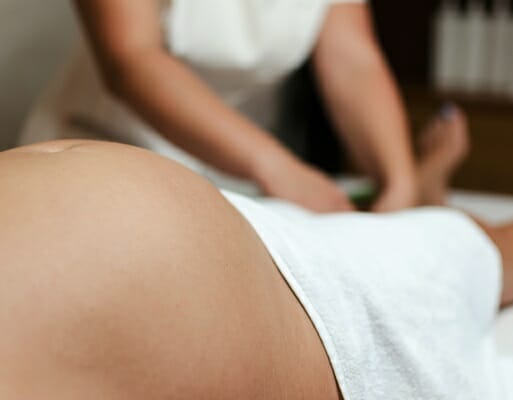
Pregnancy Massage
Pregnancy Massage, sometimes called Prenatal Massage, is a peaceful treatment that works deeply but gently to relieve the special pains of pregnancy. This therapy is carried out in the side-lying position. Pregnancy Massage will help release tension in the neck, shoulders, lower back and legs.
It is a safe and supportive treatment for women, suitable from 16 weeks to full term. Pregnancy Massage helps mums-to-be relax and reduce the impact of stress on their bodies.
Reflexology Foot Massage
Reflexology is a complementary therapy that promotes well-being through deep relaxation. It works on the theory that different points on the feet and lower legs are connected to specific areas of the body. Reflexologists focus on these points and regions using different amounts of pressure to unblock and balance the body. It is a powerful aid for relaxation and stress reduction and as such, may support the healthy functioning of the immune and digestive systems.
Swedish Massage
Swedish Massage is a classic massage that incorporates a range of techniques including stroking and gliding, kneading, rubbing, tapping or pounding and vibration. It is a gentler massage than deep tissue with a focus on general stress relief and relaxation. It is the most common type of massage and what many other massages types are based on.
Thai Massage
Thai Massage is an ancient form of massage thought to have been developed by Buddhist monks. The therapist stretches the client and uses gentle pressure along the body’s energy lines to increase flexibility, relieve muscle tension, and balance the body’s energy systems. Thai Massage can benefit anyone, regardless of age or flexibility. It is done on a large mat on the floor, with the client fully-clothed.
Thai Oil Massage
Thai Oil Massage is a variant of Traditional Thai massage, uses firm pressure and deep rhythmic movements along meridian/energy lines of the body. This treatment aims to unblock, balance and restore the body’s natural flow of Prana/Qi/Chi/Energy. By maintaining equilibrium in all organs and systems within the body, it aims to prevent poor health and disease, enabling the body to heal itself and work efficiently. Thai Oil Massage utilises the properties of specific oils to allow the therapist to glide over the body.
Warm Bamboo Massage
Warm bamboo massage uses solid bamboo sticks of different lengths and diameters to massage the body with deep long massage strokes. Originally from Asia and gaining popularity in the UK, this therapy is lovely if you like deep work. It will leave you feeling relaxed and energised and with a sense that your muscles have been stretched, warmed and elongated.
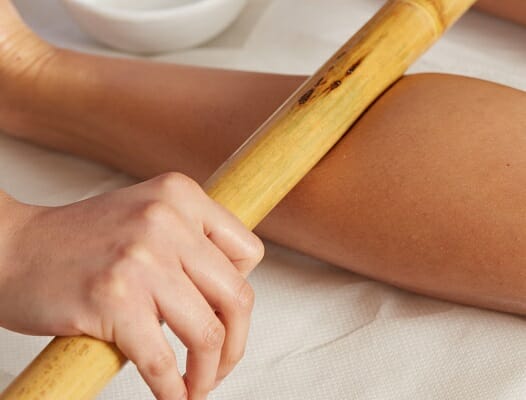
Preparing For Your Massage
Preparing for your massage can ensure you get the most from your treatment. Allow plenty of time to get to your appointment, so you are not overly stressed when you arrive.
Drink plenty of water to stay hydrated and don’t eat a heavy meal for at least 2 hours before. Take the opportunity during the consultation to let your therapist know any likes or dislikes and what you would like to gain from your treatment. Wear loose, comfortable clothing and minimal makeup. Don’t plan to do anything afterwards other than relaxing at home.
What do I wear?
The most important thing during a massage is your comfort, so we recommend you wear loose-fitting clothing. It is usual to change down to underwear during the treatment. However, you will be draped in towels with only the part of your body being worked on exposed. The extent to which you undress is your choice and your therapist will work with whatever you feel comfortable. There are also some treatments such as Shiatsu, Reiki and Thai Massage that are done through clothing. Your therapist can advise you when booking if you are unsure.
Will oils be used?
Most Massages use either oil, lotion or wax. Myofascial Release is an example of a treatment that is done on dry skin. Thai Massage and Shiatsu are done through clothing. It is essential to let your therapist know if you have any allergies or sensitivities, such as nuts.
How long will a Massage Therapy session last?
Our Massage Therapy treatments last between 35 minutes and 2 hours, depending on the treatment. For a full body massage, we recommend at 90 minutes.
Will it hurt?
Massages are not supposed to hurt, but deep work can sometimes be very uncomfortable. Try and stay relaxed by breathing deeply, but if this doesn’t help ask your therapist to reduce the pressure.
After the session is over, there can also be some soreness, but this should clear in a few days. If you have a low pain threshold, consider booking a gentler treatment like Hot Stones, Swedish or Aromatherapy Massage.
Our Professional, Experienced and Caring Therapists offer Massage Therapy, Osteopathy, Acupuncture, and Beauty Treatments. Book your appointment in Brighton & Hove Today!
Can I talk during my session?
How much you talk during your massage is entirely up to you. Some customers enjoy a natter while others like to drift off and completely relax. Always let your therapist know during the treatment if you want more or less pressure, feel too hot or cold or if the massage isn’t meeting your expectations.
How many Massage Therapy sessions will I need?
If you are in pain, we aim to make a significant difference with a weekly massage in one to six weeks. Once things have improved, we recommend a monthly treatment to stay on top of things.
Why Chose Natural Balance Therapies for your Massage?
With so much choice in Brighton & Hove, choosing the right Massage Centre can be difficult. Natural Balance Therapies was started in 2007, making it one of the most established practices. All our therapists are experienced and trained in advanced bodywork techniques, plus they are caring, friendly and passionate about their work.
What we offer at Natural Balance Therapies:
- Professional, relaxed and caring service
- Central Location just 1.5 miles from Brighton Station
- 10 minute walk from Hove Station
- Online Booking system available 24 hours a day
- Experienced Team of 12 Massage Therapists, 3 Osteopaths and an Acupuncturist
- All therapists are trained in advanced techniques
- Open 7 days a week and late most evenings, up to 8pm
- Corporate events/health promotion at your workplace



